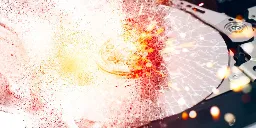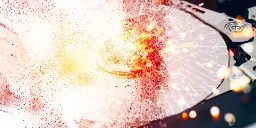Music industry’s 1990s hard drives, like all HDDs, are dying
Music industry’s 1990s hard drives, like all HDDs, are dying

arstechnica.com
Music industry’s 1990s hard drives, like all HDDs, are dying

My father told me he wanted to make USB flash drives of all the scanned and digitized family photos and other assorted letters and mementos. He planned to distribute them to all family members hoping that at least one set would survive. When I explained that they ought to be recipes to new media every N number of years or risk deteriorating or becoming unreadable (like a floppy disk when you have no floppy drive), he was genuinely shocked. He lost interest in the project that he’d thought was so bullet proof.


